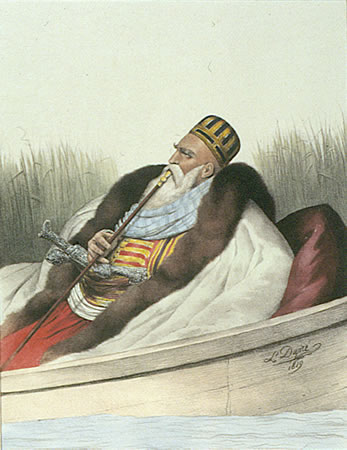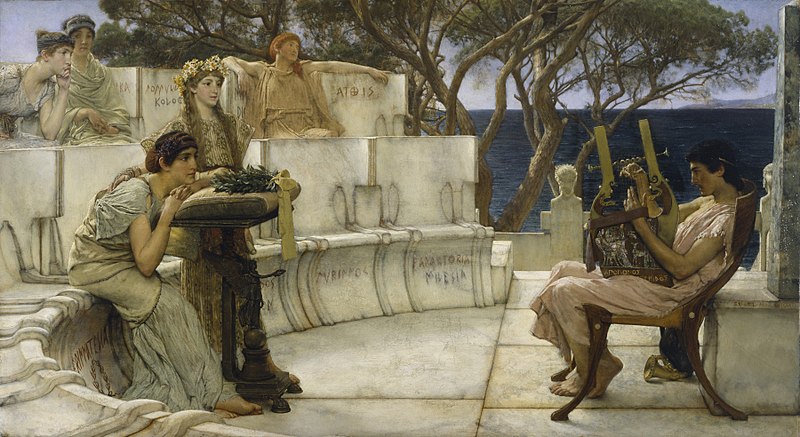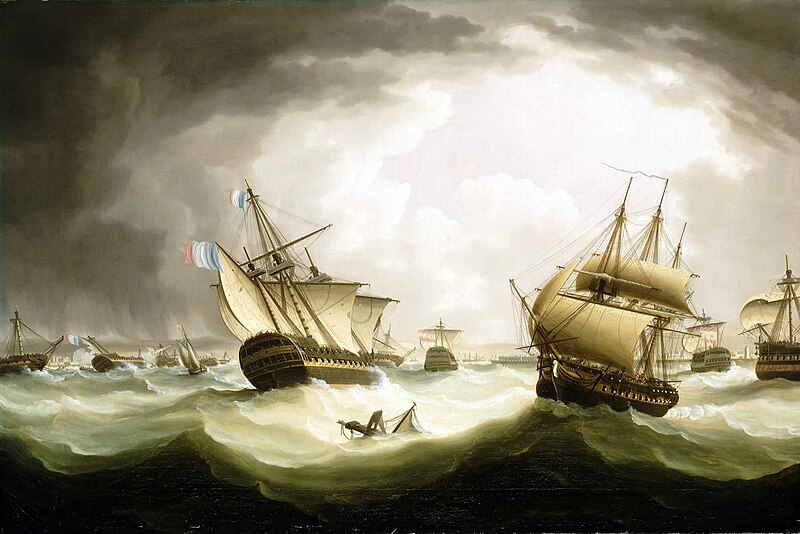Entering 19th Century, the power of what used to the Ottoman Empire was diminishing. Albania had been taken over since the end of 14th, and would be under Islamic/Turkish control for another 100 years until the blooming of Albanian nationalism. Beautiful country it is, Albania has been famous for her fearless warriors. Those are the brave ones who managed to keep their identity by escaping to Italy, Egypt, and other surrounding countries.
 |
| State Emblem of Albania |
It only makes sense that we are now heading towards Albania, the country of both Islamic and Christian background. On the other hand, being a land historically occupied by both the Greeks and the Turks, Albania has witnessed a past of conflict between the two distinct races.
Mother nature is generous to Albania. The country has a wealth of extraordinary fossils and rare animal species, some of the most beautiful and unusual, for example, the golden eagle (the country's national symbol), and the Balkan Lynx. Besides biological resources, 1/3 of the land is covered by forestry, and that is indubitably a fortune.
 |
| Lynx |
When Byron landed Albania, the country was still subordinated to Turkish control, Ali Pasha being its ruler at the time, who was extremely hospitable to his guests, sending them gifts frequently and hosting feasts each night. The poet and his entourage spent some grand time there. He also had a lot of time to emulate the journey he had had up to that point, getting ready to start penning Childe Harold's story.
 |
| Ali Pasha |
There's this guy who managed to take Albania back from the Turks, well at least for a while. His name is George Kastrioti Skanderbeg (Iskander Bey, which means, literally, lord Alexander); usually people know him as simply Skanderbeg. Think of him as someone without whom Albania wouldn't exist today. While working for the Ottoman Empire as a governor, Skanderbeg organized a rebellian military force against the Turks, bringing Christianity back to Albania. Ask anyone from that country to name you a national hero, they'll probably give you Skanderbeg, the men whose army won more than 20 battles against Ottoman force. Vivaldi wrote an opera based on his story; Byron was merely one of the many poets who wrote odes to Skanderbeg.
Henry Wadsworth Longfellow's Scanderbere revealed the characters of the hero quite vividly, as in:
| Anon from the castle walls | |
| The crescent banner falls, | 150 |
| And the crowd beholds instead, | |
| Like a portent in the sky, | |
| Iskander’s banner fly, | |
| The Black Eagle with double head; | |
| And a shout ascends on high, | 155 |
| For men’s souls are tired of the Turks, | |
| And their wicked ways and works, | |
| That have made of Ak-Hissar | |
| A city of the plague; | |
| And the loud, exultant cry | 160 |
| That echoes wide and far | |
| Is: “Long live Scanderbeg!” | |
| It was thus Iskander came | |
| Once more unto his own; | |
| And the tidings, like the flame | 165 |
| Of a conflagration blown | |
| By the winds of summer, ran, | |
| Till the land was in a blaze, | |
| And the cities far and near, | |
| Sayeth Ben Joshua Ben Meir, | 170 |
| In his Book of the Words of the Days, | |
| “Were taken as a man | |
| Would take the tip of his ear.” |
During times of its struggle and sorrow, a nation calls for a hero. It takes a lot of courage to be a hero, for the individual must face not only the demanding task of leading the crowd, but also the burden of accusation from those who misunderstand. It's a risky business to be the only who rise up from the crowd. It's never easy to be a leader, for the individual must take up to be responsible for all the followers. The leader's decision can affect too many lives to be taken lightly. Today we write stories about superman and extraordinary individuals who possess distinguished powers; they are the modern time saviours of our society who fight the crimes and intruders and eventually ride off into the sunset, mostly go on without attachment to family. Joseph Campbell calls it monomyth because we all hope someone would rise up above all to be the one who leads., yet rarely does anyone actually take on the job themselves. We all have too much to lose.
War and Love usually come in pair. It's no wonder: just look at the most celebrated and scandalous love affair of all time, the one between Ares and Aphrodite. The goddess of love is unsatisfied with her insufferably dull marriage with the crippled god of fire Hephaestus, so she started seeing the god of war, secret rendezvous and what not. Logical or not, the point is, from the soil that the flowers of war grow, blossoms love as well.
Sappho, Greek lyric poet, or better still, the girl who inspired generations to come; or BETTER STILL, the woman called "the tenth muse" by Plato. Most of her life that we know of are just fragments and traces we estimate from her surviving poetry pieces. I was first introduced to her work by Aaron Poochigian's translation of Stung with Love: Poems and Fragments by Sappho.
 |
| Sappho and Alcaeus by Lawrence Alma-Tadema |
The kind of love described in Sappho, is no doubt a bigger kind than the heterosexual one in a traditional sense, which ironically made Sappho become earliest example of homosexuality in female, the words sapphic and lesbian being derived from her name and birth place. Scholars suggested that Sappho's love is similar to what was described by Socrates: a universal love that has nothing to do with the attraction between sexes; an appreciation towards all things beautiful, which is the origin of love.
Lefkada, or Leucadia, is the place where Sappho committed suicide. It's also believed to be the original place of Ithaca in Odyssey. According to legends, this island in the middle of Ionian sea is dear to Aphrodite. At the spot from which Sappho fleet to meet her fate, the poet recounted the battles that costed lives and honour.
Battle of Actium opened the struggle between Octavian and Anthony. Historians lead us to believe in Cleopatra's role in this war as a woman more than her role as a Pharaoh because the affair between her and Mark Anthony somewhat caused the final war of Roman Republic, after which the Egyptians enjoyed a long period (207 years) of Pax Romana.
Battle of Lepanto, mourned by the Ottoman Empire and cheered by the Christians. Although the victory on the Christian side wasn't an apparent turning point for the course of history, it raised morale and, looking back it from a larger scale, it had been the battle that turned the course around. The Christian navy captured experienced Turkish sailor with superior naval skills and knowledges. They had losses afterwards, but Lepanto was an invisible beginning to the downfall of the Ottoman Empire.
 |
| After the Battle of Trafalgar |
Battle of Trafalgar, had been more recent to the poet than anything else. England, France and Spain, all out with their vast league of fleets, met at the cape of Trafalgar. This battle ended the French Naval's challenge to the Royal Navy of Britain, although it'd still take another decade for the Napoleon war to cease.
Those battles, varied in scales and origins as well as the historical backgrounds, share some underlying connections. Obviously they're all naval combats, which is how Leucadia Cape reminded Byron of them. All of them had been subtle turning point of the war of a larger scale. As you can see, the unpredictable nature of history usually make all the contemporary mad with fear and agression, and only 100 years from the present can we figure out a logic connection between events.
Of course, a shortcut would be to understand history, for everything you need to learn about now or the future, you can learn the pattern from the past.
She sings about love, of the most passionate kind, living at a time of war and turbulence. She dies, or rather, falls from the cliff of time, plunging into the mote of history. In her poem she talks about being remembered and thought of by someone in the future, calling for her lover to stand on her side, to fight as her comrades in all the battles. Her words are the lyrical presentation of how love is stronger than war. It's ironic that throughout history, love appeared to be, many a time, the cause of wars, but that doesn't discredit its power to end the wars.
This particular one of Sappho's few surviving fragments is perfect for the occasion:
“Some say an army of horsemen,
some of footsoldiers, some of ships,
is the fairest thing on the black earth,
but I say it is what one loves.
It's very easy to make this clear
to everyone, for Helen,
by far surpassing mortals in beauty,
left the best of all husbands
and sailed to Troy,
mindful of neither her child
nor her dear parents, but
with one glimpse she was seduced by
Aphrodite. For easily bent...
and nimbly...[missing text]...
has reminded me now
of Anactoria who is not here;
I would much prefer to see the lovely
way she walks and the radiant glance of her face
than the war-chariots of the Lydians or
their footsoldiers in arms.” ― Sappho






No comments:
Post a Comment